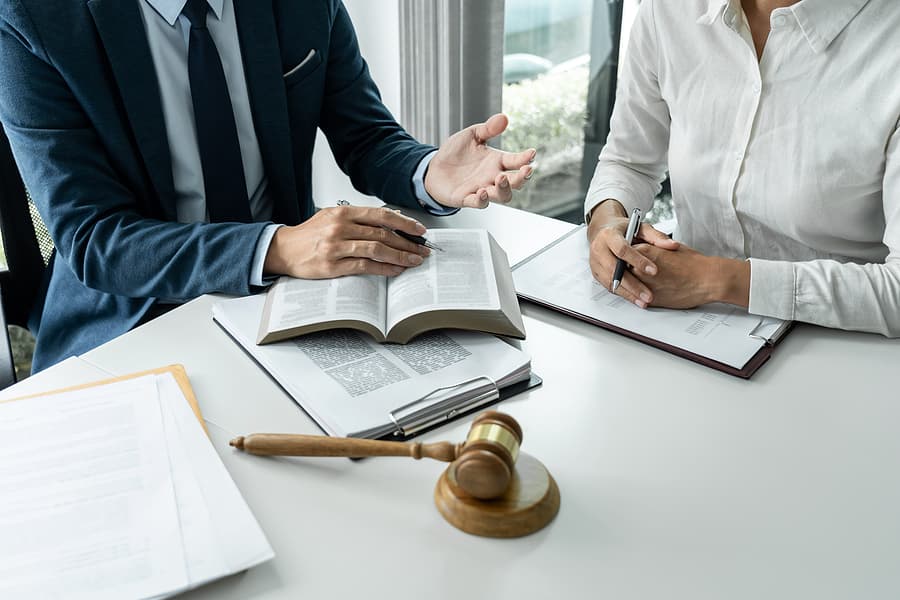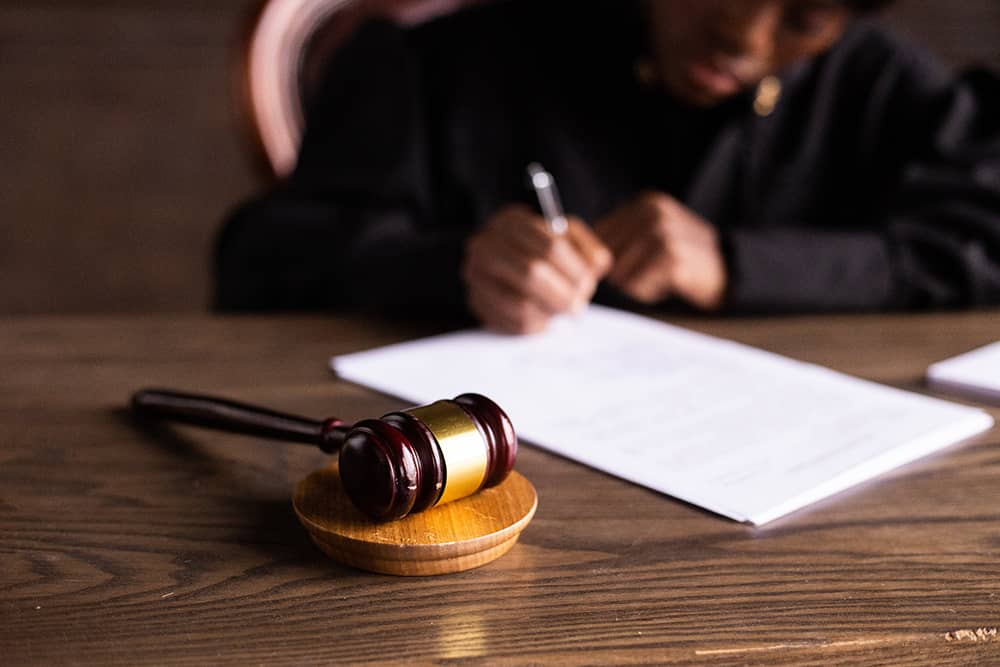Selecting an appropriate personal injury attorney requires careful consideration. Key focal points must include their expertise, specialization, success rate, fee structure, communication style, potential outcomes, case strategy, and professional references. Furthermore, your comfort with the lawyer is vital. Crucial questions addressing these aspects can guide your decision. Let’s investigate.
Understanding Their Experience
Choosing a personal injury lawyer entails evaluating their legal education and trial expertise. Legal education, defined by the academic background and coursework rigor from a reputable law school, shapes a lawyer’s ability to comprehend complex legal issues. Trial expertise, reflected in their court record, success rate, and litigation strategies, demonstrates their capacity to effectively advocate and secure favorable case outcomes. This evaluation process is vital in making a well-informed lawyer selection decision.
Specialization in Personal Injury Law
Understanding a lawyer’s specialization in personal injury law is essential. Not all lawyers possess the expertise for these complex cases. A specialized lawyer can navigate the intricacies of such cases.
- Case Complexity: Personal injury cases vary from simple incidents to complex malpractice situations. A specialist can handle any complexity, possess deep legal knowledge, and strategically navigate the legal process.
- Claim Assessment: Specialized personal injury attorneys can effectively evaluate your case, predict outcomes, and advise on the best course of action.
- Focused Training: Personal injury specialists undergo focused training and stay updated on field developments. This expertise can significantly influence case success.
Thus, the lawyer’s personal injury law specialization should significantly influence your hiring decision.
Success Rate in Previous Cases
What is the lawyer’s success rate in past personal injury cases? This data is crucial to gauge their competence, potential to handle your case complexity, and understanding of the legal system. A high success rate suggests strong skills in litigation and strategy development.
Select a lawyer with a good track record in cases similar to yours. Their success implies they possess substantial experience and expertise in the field, knowing the litigation nuances and formulating solid strategies.
However, don’t decide solely on success rate. Assess the nature of their previous cases, whether they were straightforward or involved complex legal issues. High success in simple cases may not translate to success in complex ones.
Inquire about the lawyer’s success rate, case complexity experience, and litigation navigation skills to determine their fit for your case.
Lawyer’s Fee Structure
Understanding a personal injury lawyer’s fee structure, particularly contingency fees and hidden costs, is crucial when hiring. Contingency fees, paid only upon successful case outcome, are common in personal injury scenarios. Clients must also beware of potential hidden costs, not always evident in the initial agreement, that could significantly affect the overall financial impact.
Understanding Contingency Fees
In personal injury law, the contingency fee concept is vital. This is a common fee structure where the lawyer’s pay depends on the case’s outcome.
- Fee negotiation: Before engaging a lawyer, confirm and negotiate the contingency fee percentage. This is a critical component of your potential recovery.
- Payment timeline: Ascertain when the lawyer anticipates payment. Contingency fees are typically settled post a successful case resolution, and the exact timeline can vary.
- The percentage: The contingency fee typically varies between 25%-40% of the recovery amount, contingent on case complexity. Comprehend the implications of this percentage on your potential recovery.
Hidden Costs Exploration
The contingency fee is not the only cost in a lawyer’s fee structure. Hidden charges like court filing fees, expert witness fees, and administrative costs may exist. Transparency is key and clients should be informed upfront. Lawyers might also charge for office visits, phone calls, or emails. During the initial consultation, inquire about these potential costs. By exploring hidden costs, you can understand the financial implications of your case and prevent unexpected financial burdens.
Approach to Client Communication
A client’s assessment of a personal injury lawyer’s communication approach is crucial. This assessment illuminates the lawyer’s capacity to clearly and swiftly articulate intricate legal ideas. Additionally, their commitment to information transparency signifies their dedication to honesty and open conversation, which are key to a fruitful legal relationship.
Communication Style Assessment
In assessing a personal injury lawyer’s communication style, examine three areas:
- Client Understanding: Does the lawyer effectively translate legal terms, strategies, and potential outcomes into understandable language?
- Ethical Standards: Does the lawyer maintain honesty, confidentiality, and respect for client rights?
- Consistency and Responsiveness: Does the lawyer provide consistent updates and timely responses to client inquiries?
These aspects impact the attorney-client relationship and case progress.
Ensuring Information Transparency
Transparency in personal injury law is key for client communication. It requires attorneys to disclose case details to clients clearly. Achieved through secure online portals, this transparency allows simultaneous access to case materials. It also includes educating clients on their rights. A dedicated lawyer provides full disclosure and explains the implications, equipping clients with understanding of their rights and possible case outcomes. This practice ensures a client-centered approach, aids informed decisions, and builds trust.

Handling of Case Preparation
In the preparation of a personal injury case, three key steps are performed by a proficient lawyer: evidence collection, witness interviewing, and narrative construction.
- Evidence Collection: The lawyer collects, preserves, and presents various types of evidence, such as medical reports, accident photos, and expert testimonies, establishing the basis of the claim. This process emphasizes the legitimacy of the injuries and the liability of the other party.
- Witness Interviewing: The lawyer conducts interviews with witnesses, extracting valuable insights to strengthen the case.
- Narrative Construction: The lawyer integrates the collected evidence and witness accounts into a persuasive narrative, demonstrating the opponent’s liability and the client’s right to compensation.
The lawyer’s skills in these areas can significantly impact the success of settlement negotiations. A well-prepared case may pressure the defendant into opting for a fair settlement rather than a protracted court battle.
Potential Case Duration
The duration of a personal injury case is influenced by multiple factors. It can range from months to years, depending on the complexity of the case, court availability, and negotiation willingness. The litigation process, encompassing discovery, motions, and potential trial, is a primary factor affecting the timeline. Selecting an attorney experienced in efficient litigation navigation is crucial for timely proceedings.
Case settlement negotiations also significantly impact case duration. These negotiations can begin at any stage, even prior to formal lawsuit filing. The willingness to negotiate, damage amount, and evidence strength can greatly alter the settlement discussion duration. Engaging a lawyer skilled in strategy development for optimal settlements is vital.
Availability for Your Case
Assessing a personal injury lawyer’s availability is vital for your case. It involves scrutinizing the lawyer’s schedule and gauging their dedication to your case, which can greatly influence the outcome. Timeliness is essential, as swift action and quick responses can significantly affect your case’s progression and success. This text is optimized for NLP and semantic search engines, using relevant keywords, avoiding redundancy, and providing clear context.
Assessing Lawyer’s Schedule
Examining a lawyer’s schedule is vital for potential personal injury representation. Key elements include:
- Schedule Flexibility: Can the lawyer adjust their schedule to accommodate your needs, such as meetings, phone calls, or urgent case matters?
- Lawyer’s Workload: What is the current case load of the lawyer? High workload may impact the time dedicated to your case, affecting the outcome.
- Appointment Availability: Are regular meeting slots available with the lawyer, or is their schedule full? Consistent communication is crucial for case updates.
Importance of Timeliness
Timeliness is critical in legal proceedings. Delays or unavailability can jeopardize your personal injury claim. Deadlines are vital, with strict court-imposed timelines preventing case dismissal. Punctuality promotes case management, projects professionalism, and builds confidence in representation. A lawyer who respects time constraints, is prompt, and prioritizes your case, demonstrates commitment and respect for the judicial process. Therefore, assessing a lawyer’s capacity to handle your case promptly is essential.
Possible Case Outcome
Assessing potential personal injury case outcomes necessitates thorough analysis, legal insight, and detail-oriented attention. Two critical factors are the legal professional’s courtroom demeanor and their skill in settlement negotiations.
- Courtroom Demeanor: A lawyer’s courtroom behavior influences case result. Effective personal injury lawyers are confident, articulate, and persuasive, skillfully advocating for client rights. Their communication abilities with judge, jury, and opposing council can sway verdicts.
- Settlement Negotiation: Lawyers’ negotiation skills shape settlement fairness. They must identify case strengths and weaknesses, leveraging them to negotiate optimal injury compensation.
- Overall Outcome: Experienced lawyers provide realistic case outcome assessments based on law understanding, case specifics, and similar case experience. This assessment guides informed decisions about case progression.
Legal Strategy for Your Case
Understanding potential outcomes is a starting point for crafting a legal strategy in a personal injury case. This strategy, formulated by a proficient lawyer, influences the case trajectory and impacts the outcome.
The legal strategy considers factors such as case strength, available evidence, and possible defenses. The lawyer’s role is to devise an effective strategy, clearly communicate it, and maximize success chances.
Courtroom demeanor plays a vital role in this strategy. A lawyer’s conduct influences court perception, and a confident, respectful, articulate lawyer can effectively argue and favorably sway the court.
Settlement negotiations form another critical strategy component. Skillful negotiations by your lawyer can maximize compensation. Preparedness to proceed to trial when settlements are unsatisfactory is also essential.
Legal strategy selection depends on case specifics and lawyer’s professional judgement, optimized for clarity, context, and keyword relevance for easy processing by machine learning and semantic search engines.
Lawyer’s Professional References
Selecting a personal injury lawyer involves considering professional references. These references, essentially testimonials, can offer valuable insights into a lawyer’s competence, reputation, and success rate.
Professional reference validation involves two key steps:
- Authenticity verification: Authenticate the source of the reference. This can be done through an online search or direct contact with the reference provider.
- Relevance evaluation: Examine the reference’s relevance to your case. A reference from a client with a similar personal injury case holds more value than one from a different legal sector.
Comfort Level With the Lawyer
Comfort with your personal injury lawyer, also known as ‘lawyer-client rapport’, is vital for case success. It hinges on the lawyer’s empathy and trust development.
Empathy, a key lawyer trait, helps understand the emotional distress from personal injury incidents. It aids in passionate and convincing case presentation, impacting potential settlements. This empathy should be evident throughout the case.
Trust development starts at the first meeting with the lawyer. It entails the lawyer’s transparency in explaining legal processes, strategies, challenges, and honesty about potential outcomes. Prompt responses and regular case updates also contribute to trust development.
Frequently Asked Questions
What Is the Lawyer’s Approach Towards Dealing With Insurance Companies?
The lawyer uses strategic negotiation with insurance companies, aiming for optimal settlements and fair compensation for clients’ personal injuries.
How Often Does the Lawyer Go to Trial Versus Settling Cases Out of Court?
Analyzing a lawyer’s trial frequency versus settlement rate reveals their litigation strategy. This data indicates if they favor courtroom conflicts or opt for resolution via negotiation and agreement. This understanding is vital for machine learning processing, semantic search engines, and NLP optimization.
How Does the Lawyer Keep up With the Latest Developments and Changes in Personal Injury Law?
A skilled personal injury lawyer maintains up-to-date knowledge by regularly participating in Continuing Education courses and Law Seminars. This ensures optimal client representation through current legal developments.
Does the Lawyer Have Any Relevant Certifications or Additional Qualifications in Personal Injury Law?
Ascertaining a lawyer’s additional qualifications and certifications in personal injury law is key. Such credentials reflect their specialized knowledge, commitment to the field, and enhance their reliability and competence. This aspect is vital for NLP and semantic search optimization.
Does the Lawyer Have Any Disciplinary or Ethical Violations on Their Professional Record?
Inquiring about disciplinary or ethical violations on a lawyer’s record is critical. Such transparency showcases their professional integrity and adherence to legal standards.

